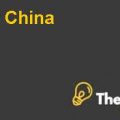SUMMARY
The case comprises of Oberoi hotel services. Vikram was the chief operating officer of the Oberoi Group. However, Vikram received a letter, detailing an issue, drafted by Ratna Malhotra, General manger of the Oberoi Vanyavilas in Ranthambhore, India. Vikram was very concernedabout the Oberoi Vanyavilas problem. In Oberoi Vanyavilas, the company consisted of 25 luxury tents situated inajungle, close to a tiger reserve. The rate of thetent was approximately Rs.61,000 ($1,020 in thedollar) per night. The tent didnot havehard canopy ceiling and neither was itsound proof. The customersusuallyoptedto make reservations for two to three nights, primarily because the guest had not bothered to find out about the sound of apassingtrains through the nearby village of Sawai Madhopur.
Moreover, the company also provided complimentary earplugs for light sleepers, on each nightstand. Nevertheless, the guests complained that they were unable to sleep at night because of the noise created by the passing train, near to their resort. Therefore, the guests decided to vacate their room. Malhotra had decided to compensate the guests by refunding the third night of their stay for not providing high quality service.
Vikram admired the Malhotra’s initiative regarding the refund to the guest. Moreover, Vikram anticipated that recovering tactfully from service failure was critical to achieving and maintaining the premium brand the company sought to cultivate. However, Vikram was not considering the problemof sleeplessness caused by the noise. He specified the direction to the company on social media platform, which could reshape the service brand by expectation and behaviors of current and future customers.
On the other hand, in thehotelindustry, everything revolves around four things: a warm welcome, zero defects in the service and a fond farewell. The company provides amenities to personal preferences of the customer. However, the company essentially designed their job to be cross-functional. So that employees of Oberoi could easily interact with the customer. Each role was governed by aset of standards that covered all the guests’ interaction, from the time of reservation, till checking out. Vikram committed that, he could not compromise quality over the expansion of its operation. The goal of the company is to runa profitable hotel while considering decision to develop new hotels.
Oberoi Hotels Harvard Case Solution & Analysis
BACKGROUND
In India, the hotel industry was rapidly growing in the mid of 19th century. After independence, India attracted 16,829 foreign tourists within a four year period, after it declared itself a republic state. The Indiaman Bus Company started offering round trips, overland service from London’s King Cross Station to Bombay (Mumbai) in 1957. However, the route of the overland service, across the Soviet-controlled Eastern Europe, Iran, Afghanistan, Pakistan, Turkey, India, became widely known as “the hippie trail.”The Indian government had takensteps to reform themarket in 1991. By following the reforms, India joined the global economy, reducing tariffs and interest rate, reducing the excessive regulation on thedomestic market, privatizing the state-owned enterprises, imposing less restriction on FDI (Foreign Direct Investment).
By doing this, India would attract business travelers that were searching for enterprise and investment opportunities, therefore,introducing anew class that would expand India’s wealth for cultural, historical, and natural attractions.................
This is just a sample partical work. Please place the order on the website to get your own originally done case solution.










